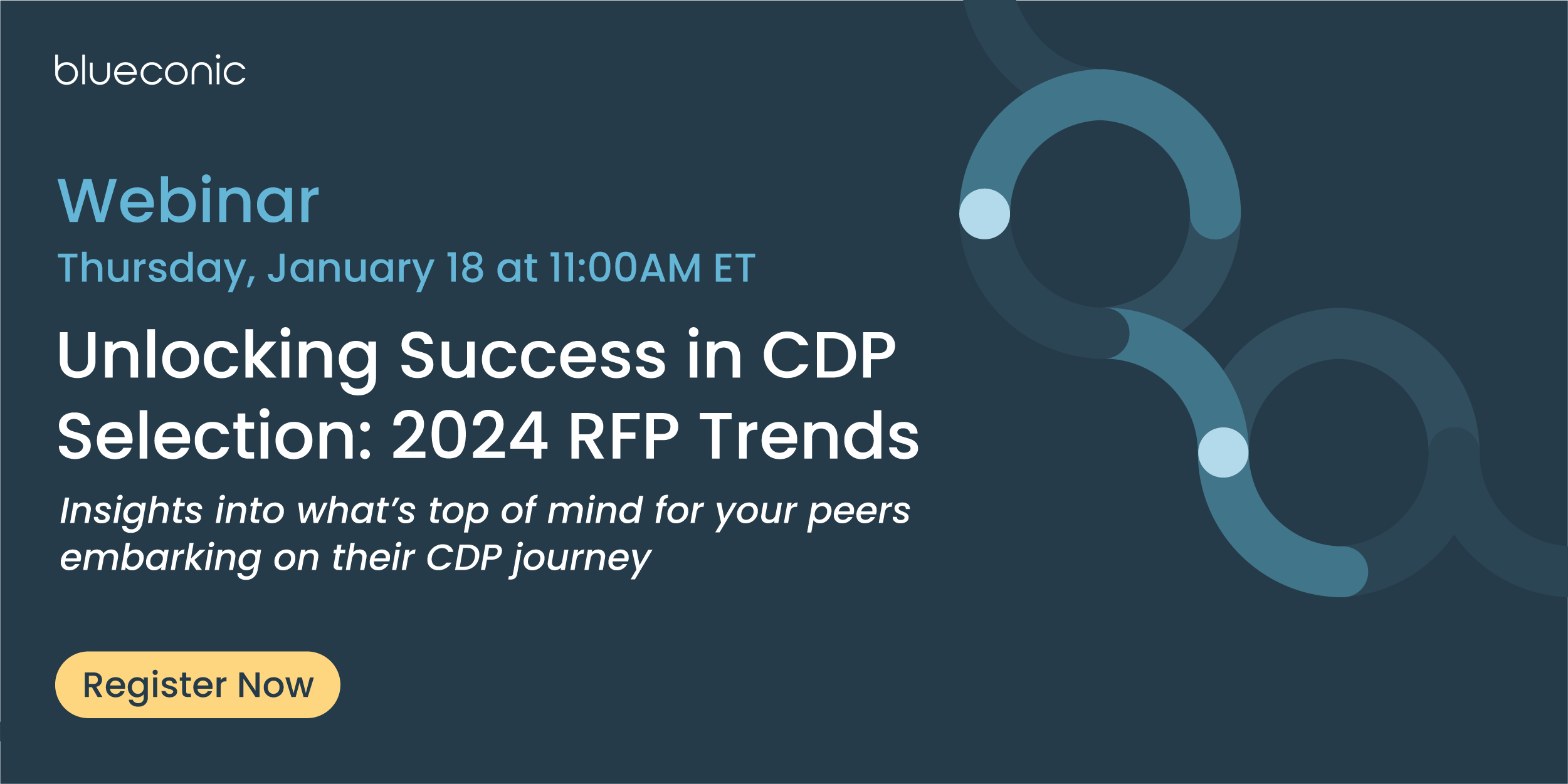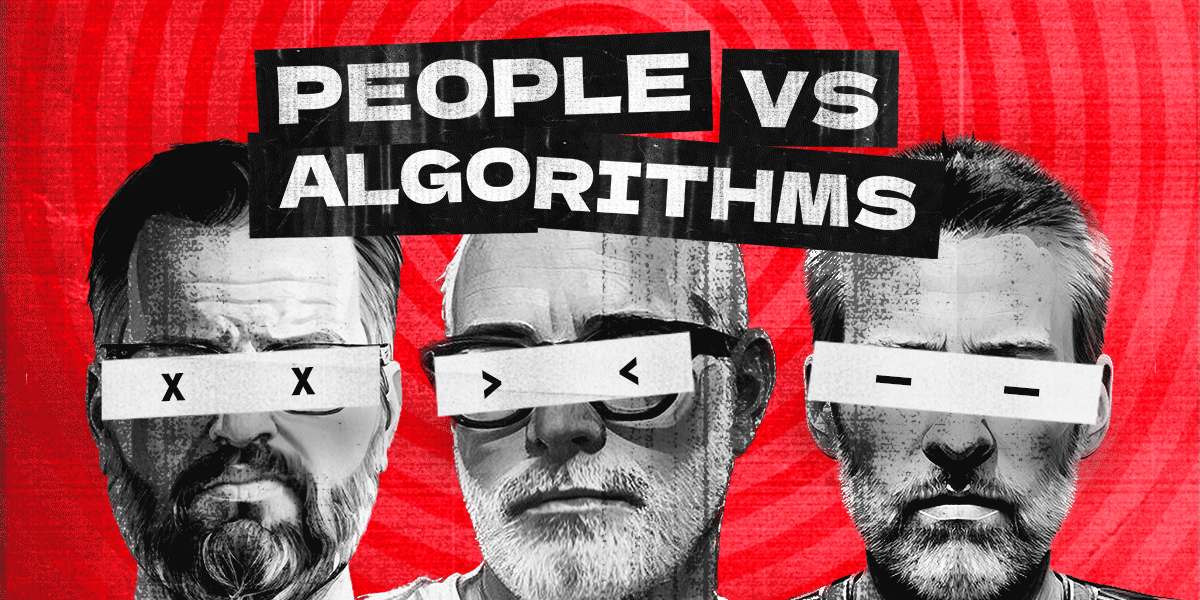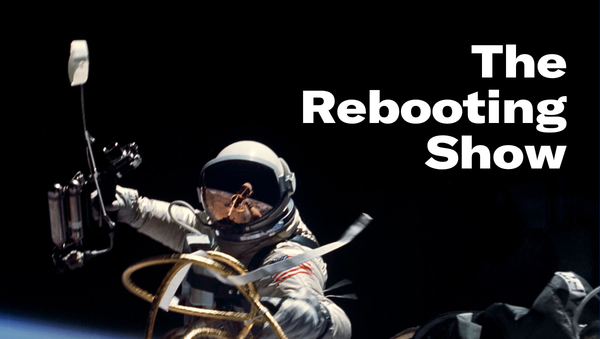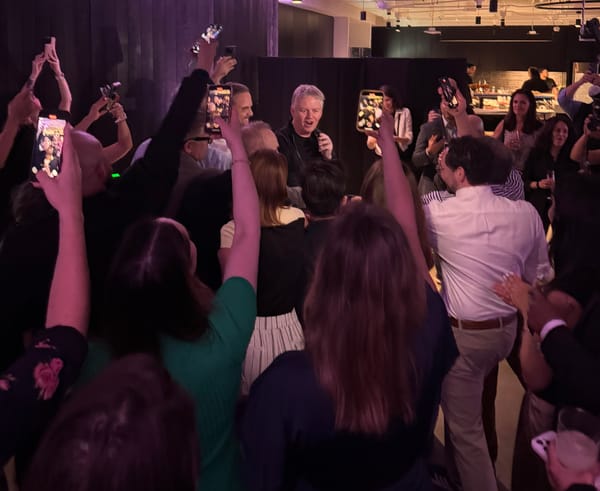Fairness
Adversarial journalism to me, hit piece to you

Hello from Las Vegas, where tonight I’m hosting a the first dinner of the year as part of The Rebooting Dinner Series. Thanks to Outbrain and Adelaide for partnering on it. My first impression of Vegas since last year: The Sphere was worth every penny of the $1.3 billion. We need more of these type of Jetsons-like projects.
Today’s newsletter is focused on fairness. On People vs Algorithms, we discussed the nature of “hit pieces,” not just in the abstract but what the experience of being on the receiving end of adversarial journalism is like. I also look at the current battles between Bill Ackman and BI and The New York Times and OpenAI through the prism of fairness.
First up, a message from The Rebooting’s sponsor, Blueconic.

Explore buyer priorities in CDP evaluation

BlueConic is hosting a webinar next week where CDP experts will unveil the 2024 RFP trends reshaping CDP evaluation. Join in on January 18 at 11am ET.
Delve into real-world insights from recent RFPs, explore the top five crucial questions every evaluation should include, and master the art of tailoring CDP data models to your unique needs.
Plus, don't miss the discussion on the significance of GenAI and Composable solutions in the CDP landscape. Stay ahead of the curve in marketing technology—secure your spot now!
Fair play

Many of the running culture war battles of today share a common thread: What’s fair? The fight over DEI is really a fight over fairness. To conservatives critics, focusing on outcomes rather than opportunity is unfair. To progressive proponents, the entire American system is built on unfairness to bias the powerful.
The current precarious state of the media business is grappling with this question on several fronts. With the rise of artificial intelligence and large-language models, the battles come down to how to interpret fair use in a context now that bears zero resemblance to the 19th century when the legal doctrine came into use in the United States.
At the same time, the current scrum between billionaire investor Bill Ackman and elite universities and now Business Insider and parent company Axel Springer also hinges on fairness. In Ackman’s view, BI’s focus on his wife’s omissions and mistakes in her academic writings is an unfair attack, as well as requesting comment late in the reporting process. (Ackman has also claimed the errors do not amount to plagiarism.) After all, he’s the one who led the charge against Ivy League universities’ approach to protests over the Israel-Gaza war. To the BI newsroom, this is just a powerful person who invited scrutiny by championing plagiarism charges that ultimately led to the resignation of Harvard’s president. Oxman has been on magazine covers and held a prominent position at the MIT Media Lab. That made her a fair target of scrutiny, even though her husband’s actions were the motivation of the story.
Most of us aspire to be fair, yet we regularly run into circumstances where others disagree about what’s fair, and our own biases end up coloring our perceptions. Humans tend to be a jumble of contradictions and prone to constructing narratives in which they regularly play the protagonist.
Ackman has become a mainstay of Elon Musk era X. He’s moved from a famed “activist investor” – an artful rebranding of “corporate raider” – to flexing his influence on a wide array of issues, usually with a conservative bent and unspooled in lengthy tweets. He was particularly active in the fight over elite academic institutions approach to quashing anti-Semitism, notably the toppling of Harvard’s president,
Ackman is now at war with Business Insider, which turned the same scrutiny to Ackman’s own family in the form of his wife, Neri Oxman, a former MIT academic. BI investigated Oxman’s thesis, finding several instances of what it characterize as academic fraud. Ackman has vowed a scorched earth campaign in response – and BI’s parent company, Axel Springer, is investigating the reporting process, which to journalists is Step 1 to caving to powerful outside interests. Springer seems to be adjusting its stance, based on what its flack is telling Puck’s Dylan Byers.
Ackman is playing his preferred role as rabid attacker. He’s demanding BI “depublish” the stories, apologize, and create a “settlement fund” to “compensate all those who have been victimized by BI.” Oh, and a bunch of people have Springer CEO has to fly to New York tomorrow to have what would likely be a very scary meeting.
Reading the stories, I was left torn. I believe in scrutiny of the powerful, since for all we rail against other countries’ oligarchs and cartels, we have many of our own. Personally, I wouldn’t have run them. If it was Ackman’ dissertation – he’d likely publish it as a thread – that’s one thing, but bringing in his wife is a stretch. Also, although there’s a running battle over whether the offenses are plagiarism, I was left wondering who cares. Do we really need a societal debate on Harvard's Wikipedia citation policies? That was always the problem with Gawker publishing the Hulk Hogan video and the truly awful piece on a media company executive for his sex life.
This ends up being a question of fairness. Is it fair to turn the same scrutiny Ackman used against Gay and others on his wife? Is she a public figure? Is it fair to use plagiarism for what appears to be fairly minor errors and omissions? Is there an actual public interest in any of this? Missing quotation marks in a dissertation is as close to a victimless “crime” you’ll find in the world. I’m not sure even Ackman’s most ardent critic would claim to have learned something illuminating, other than confirmation of their already strongly held belief he's a hypocrite.
There’s a similarity between this case and The New York Times battling OpenAI. That will hinge on legal interpretations of fair use. At its essence, the NYT is arguing that large-language models, controlled mostly by oligarchs, aren’t fair to publishers or anyone creating content by deconstructing content and reassembling it as quasi-authoritative answers in ChatGPT. OpenAI’s response: Training on copyrighted material falls under fair use since ChatGPT is producing derivative works that aren’t regurgitations outside of a few edge cases. (Tech companies always fall to the “edge case” defense when presented with some kind of sketchiness.)
Roger Lynch, CEO of Condé Nast and subject of a union poster campaign in bathroom stalls, has stepped forth as an unlikely ally. He testified to the Senate yesterday that “current Gen AI tools have been built with stolen goods.” He argues that fair use doctrine does not apply to copyrighted work because it will distort the market in order to “enrich technology companies that prefer not to pay” for content. What Lynch is arguing is that beyond the method used, the end result is unfair.
How fair is it that technology companies can slurp up the world’s content, mix it up, use AI to create a mishmash and take most, if not all, the economic value from the resulting content? On a gut level, that doesn’t seem very fair.
OpenAI is leaning on the position that training on copyrighted data is fair use, not very different than how humans learn by reading all kinds of things and then create new things. Everything is derivative on some level. “We view this principle as fair to creators, necessary for innovators, and critical for US competitiveness,” OpenAI states. Note how the specter of China creeps into the rationale.
The reality is fairness is a nice-to-have in business. Springer and the Associated Press have already struck deals with OpenAI. CNN, Time and other publishers are in negotiations, according to Bloomberg. This isn’t like the previous era, when publishers would get wide-eyed with the promise of revenue at some point. It’s always about the size of the check.
The New York Times was itself in negotiations with OpenAI, which the AI company noted in its response, and this is part of that negotiation. Leverage always beats fairness.

The truth about tech marketing (happy CES week!)

Ever heard news from an orange juice convention? Or a toilet paper conference? There’s a reason conferences like CES make headlines: Tech has a huge impact on people’s lives. Which means tech brands are different, which means tech marketing is different. Specialized products, narrow channels, and a super smart audience. At Codeword, navigating those challenges is what we do. Our expertise comes in handy in a world where so many companies want to be positioned as tech companies. Except OJ brands, we’re not a fit for them.
Everyone else can get in touch with us here, or at CES.
Hit pieces, fairness, drugs and VR

On this week’s episode of People vs Algorithms, Troy, Alex and I discuss the saga of Bill Ackman vs Business Insider, along with The Wall Street Journal’s recent story on Elon Musk’s drug use. We get into what makes a “hit piece,” the go-to moniker affixed to these types of articles to diminish them. Listen to the conversation on Apple, Spotify or other podcast services.
Thanks for reading. Send me a note with your feedback: bmorrissey@therebooting.com.
Thank you to Blueconic and Codeword for their support.




